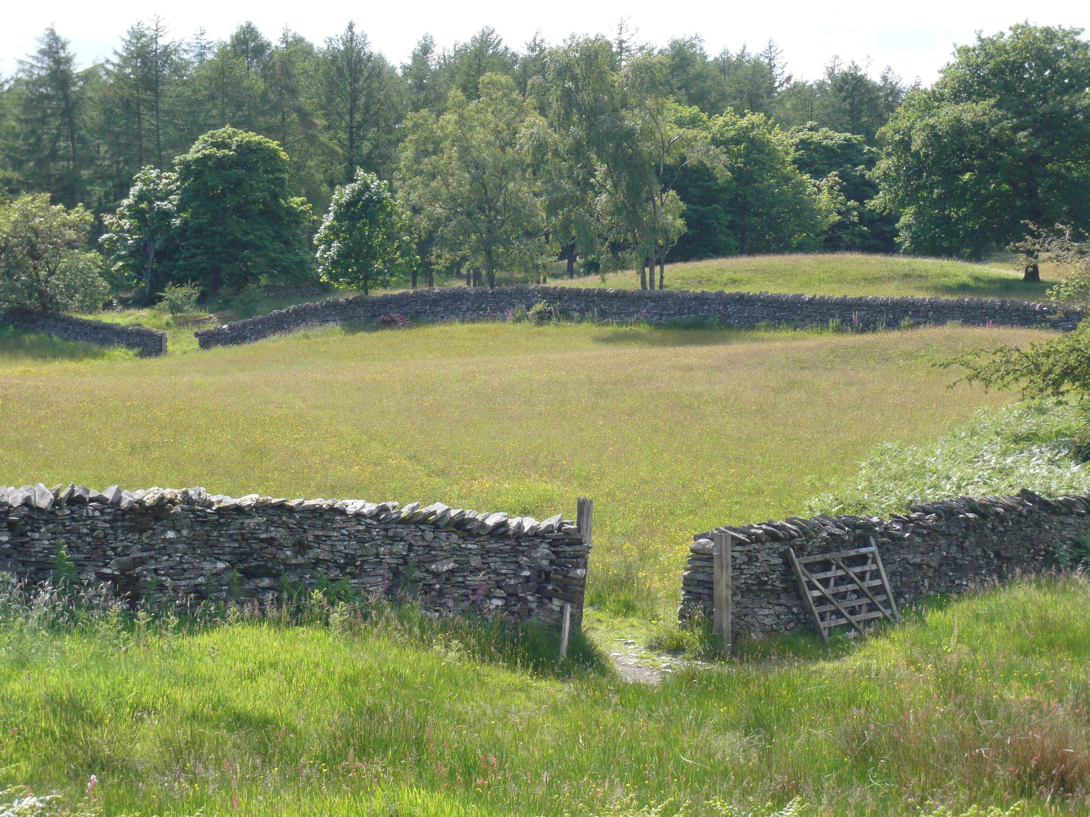As I look across my writing table at a fresh bouquet of sweet peas, I lean over and take pleasure in their distinctive perfume. The scent is stronger than usual and I’m wondering if it is because of the hot, dry summer we have been having. The aromatic oils in herbs are stronger in hot dry climates, so is the same true of sweet peas and roses?
What a summer we are having! Working in this heat was a labour of love. We would rather recline in the shade than toil under an unforgiving sun but there is much to do. We got in our earliest hay crop ever - 164 bales of lovely flower-rich dry hay that will feed our ponies this winter.
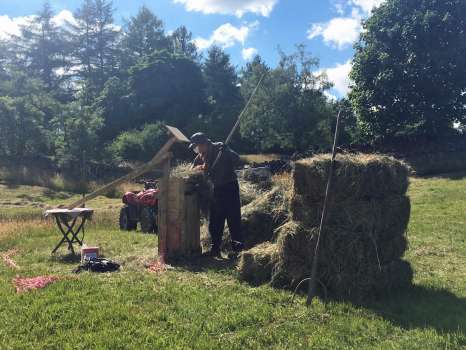
Watering in the evening was taking two of us an hour to get round everything. United Utilities is unfortunately imposing a hosepipe ban from the 5th of August. Reservoirs are too low they say and they are applying to extract water from Windermere and Ullswater if necessary. It is a worry for us as we have many plants in pots and young veg struggling to get established. Mulching is in order and luckily we have lots of home made compost to use. The ponies have been staying in the barn in this hot weather to escape the flies and leaving us their contributions which we mix with bracken and veg waste from the house. Good compost is the backbone of an organic garden and taking the time to make it is time well spent.
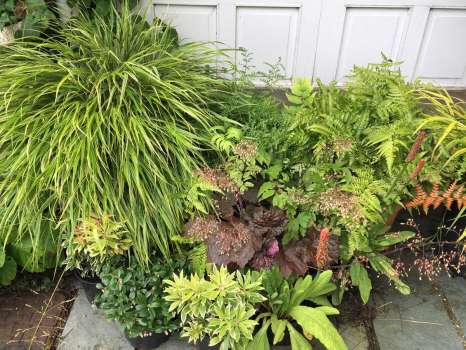
Last night the heat wave broke and today we have had the first substantial rain in two months. The many rain butts about the place are full again. Tonight when I went out to take some pictures the stream feeding the tarn was running again. What a sweet sound it was, made sweeter by its absence over this heatwave. Our stream had dried up for almost a month which is the first time in the 25 years we have been here.
It appears our Countryside Stewardship Higher Tier application is going through. We are very pleased as the support from Natural England will help us to continue doing what we do already and not be out of pocket. It will also make it possible to plan some new projects such as planting trees, repairing our stone walls, planting a new native hedge and installing some bird and bat boxes. We had a butterfly expert come last week via Natural England and he said that there was no reason why our land could not support Duke of Burgundy and Marsh and High Brown Fritillaries. We have the larval food plants they need, in this case primrose and violet. He also thought he spotted a Green Hairstreak as we were walking around which was very exciting. These rare butterflies are moving north with climate change and with the right habitat they can thrive here at Yewfield.
However, every silver lining has a cloud lurking. We have received our statutory plant health notice for the fungus Phytopthera ramorum in our woodland. It means we will be spending much of the next two months supporting contractors to fell larch trees. We were gutted to first hear the news but we just have to get on with it and look forward to the day we can redesign and replant the wood. I wrote an article in the latest Royal Forestry Society Journal about managing our small woodland, written before the identification of Phytophthera here. Here is the link. You never know what is around the corner when working with land…
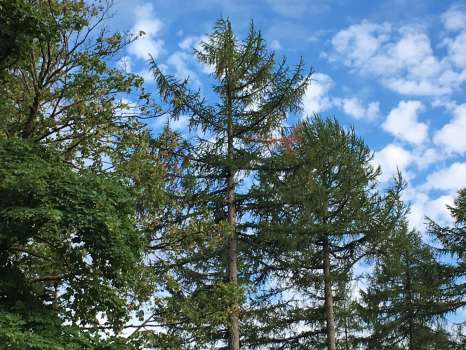
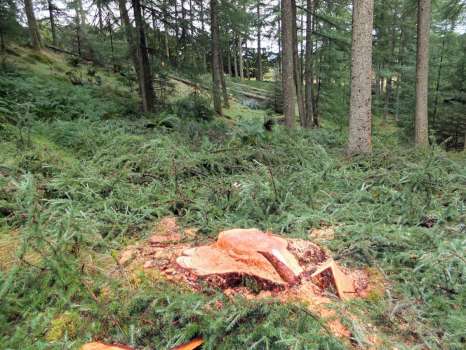
Go back to all blog posts or read the next entry in our blog here →
You can also read the previous blog post here.
